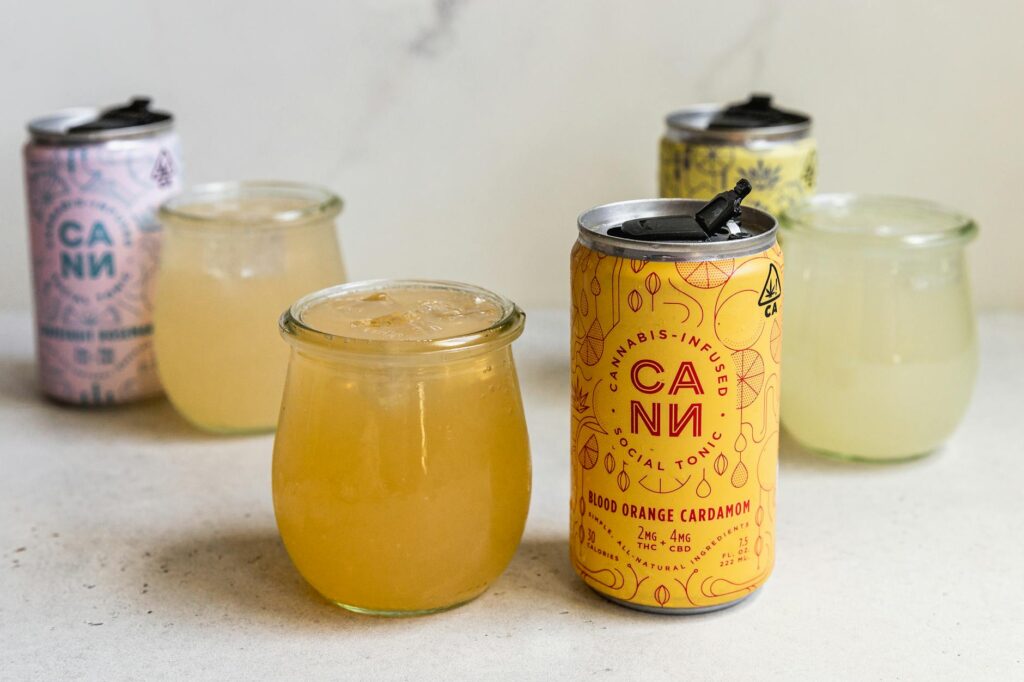HARTFORD, CT – A sweeping cannabis bill is being debated in the legislature and within the industry, with opponents voicing concern that increased regulations will drive out businesses and that recent legislative decisions on the sale of recreational pot will be circumvented.
The legislation, House Bill 5150, redefines and broadens the definition of a “high-THC hemp product,” which is more highly regulated, and expands so-called “disproportionately impacted area,” those parts of the state deemed to have been disproportionately affected by criminal cannabis laws and from where applicants for licenses to sell recreational marijuana were given priority.
a green button that says support and red button that says oppose
Click above to vote and comment on 2024 HB 5150: AN ACT CONCERNING CANNABIS AND HEMP REGULATION
The bill establishes a new category of THC “which it classifies as an ‘infused beverage’ and requires it to meet many of the requirements for manufacturer hemp products,” according to the Office of Legislative Research. The bill prohibits sales to anyone under age 21.
THC is delta-9-tetrahydrocannabinol, the main psychoactive ingredient in the cannabis plant. The bill seeks to lower the amount of THC for a product to be considered a high-THC hemp product and removes the differing thresholds depending on the type of product, setting a uniform threshold.
High-THC hemp products can only be solid in Connecticut by licensed dispensaries, cannabis retailers, or hybrid retailers. The bill limits the amount of THC in manufactured hemp products and requires it to be sold in establishments that only sell other hemp products.
A number of industry representatives submitted testimony opposing the bill based on the THC-level changes, including some that said their businesses would be in jeopardy.
“We will no longer be able to operate in (Connecticut),” wrote Jacob Honig, co-owner of The CBGGurus of Harwinton, a hemp farm which sells its products online and to wholesale partners.
Duncan Markovich, founder and owner of Better Ways LLC, a self-described cannabis therapeutics business in Branford, said the measures will further create “great distance and space between the marketplace and the regulated market undermining our emerging industry and at the end of the day costing the state its highly sought after tax generation.”
Those who provided testimony in support of the bill’s “infused beverage” aspects included Steve Palauskas, owner and founder of Connecticut Valley Brewing in South Windsor, who said keeping legal so-called “D9 seltzer” drinks was critical to his business. D9 seltzers are infused with THC.
“My business needs this product because it is the extra revenue generated that keeps all 45 men and women employed,” he wrote in testimony.
Other aspects of the bill won support among those in the industry, including language for cannabis product packagers to expand their license to include manufacturing.
“The changes that have recently been introduced in this bill will not only give product packagers the ability to implement a viable business plan, but will also give product packagers the ability to provide critical services to other license types within the supply chain,” wrote social equity licensee George Kingsley, who operates Dutch Packaging. “Without these changes, the likelihood that any product packagers will spend any more time and money required to earn a final license is unlikely, which will certainly create bottlenecks within the cannabis supply chain as the market matures in the near future.”
The social equity aspects of recreational pot laws were critical to the legislation being passed and has become an element of debate related to the bill.
Proposed changes would allow certain social equity cultivator applicants to partner with hemp producers to receive either a license that allows cultivation outside a disproportionately impacted area. It would also expand what is considered a disproportionately impacted area to include state tribal reservations and other land tribes own.
Those changes raised concerns for at least one lawmaker who said he was worried the expansion of the areas would undercut lawmakers’ intentions.
“It was the will of the legislature when we passed legalization of cannabis to support communities most affected by the war on drugs,” said Sen. John Fonfara, D-Hartford. “This legislation has the potential to circumvent that.”
Rep. Holly Cheeseman, R-East Lyme, said the legislation is a “work in progress” and there can should be ways to protect areas in the state that were intended to be priorities for license approval in the original legislation.
The Finance, Revenue and Bonding Committee sent the bill to the House floor Monday on a 32-15 vote. It was tabled for the calendar in the House.
H/T: ctnewsjunkie.com



